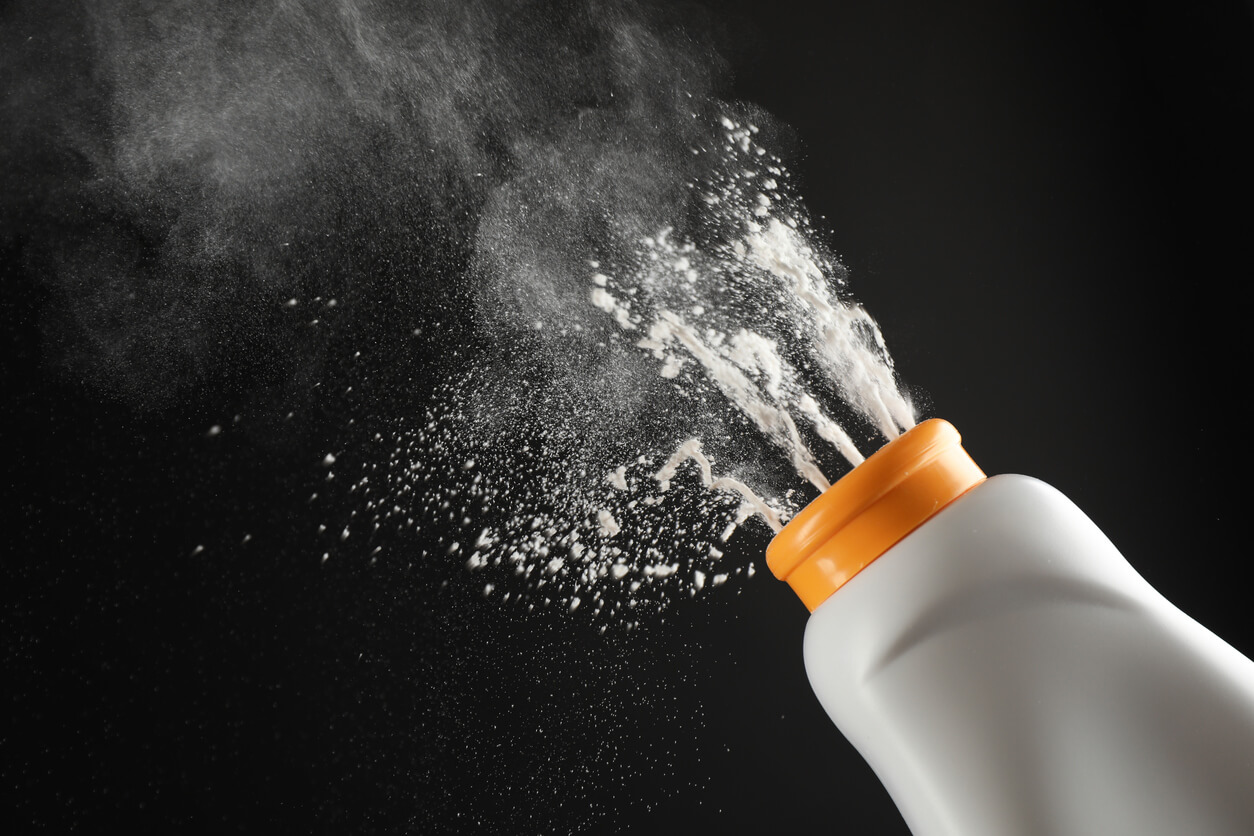12 States Affected by Baby Powder Recall for Asbestos Contamination
Editors carefully fact-check all Drugwatch.com content for accuracy and quality.
Drugwatch.com has a stringent fact-checking process. It starts with our strict sourcing guidelines.
We only gather information from credible sources. This includes peer-reviewed medical journals, reputable media outlets, government reports, court records and interviews with qualified experts.

A recall has been issued for baby powder that was sold in 12 states earlier this year. Dynarex Corporation announced last week that some of its Dynacare baby powder may have been contaminated with asbestos.
The cases in question were sold in the following states:
- Alabama
- Arkansas
- Colorado
- Illinois
- Kentucky
- North Carolina
- New Jersey
- Pennsylvania
- Tennessee
- Florida
- Washington
- Wisconsin
The affected baby powder, which is packaged in 14 oz. plastic bottles, may also have been sold on Amazon.
Products that may have contained asbestos were sent to distributors in March. The item number of the impacted cases is 4875.
According to the Food and Drug Administration, a routine sampling program by the agency uncovered asbestos contamination within the finished products. Dynarex immediately issued a recall and has ceased distribution of the product as it investigates how the contamination occurred.
Dynacare’s baby powder contains talc, a mineral that can be used to absorb moisture and odor. But it is often found near asbestos in the earth, making cross-contamination a risk.
Exposure to asbestos can result in the development of mesothelioma, a rare and aggressive form of cancer that affects the lining of internal organs.
Concerns of Health Risks from Talc-Based Baby Powder Have Grown in Recent Years
This is not the first time in recent years that talcum-based baby powder has been linked to serious health concerns.
Johnson & Johnson recalled 33,000 bottles of its baby powder in 2019 after the FDA discovered asbestos in test samples. The pharmaceutical giant went on to discontinue sales of its talc-based powder in the U.S. in 2020.
Numerous lawsuits against J&J have sprung up as a result of possible contamination, with plaintiffs seeing some big wins. Just last month, a South Carolina jury awarded $63.4 million to a man who developed mesothelioma after using J&J baby powder every day for years because of a deodorant allergy.
The family of a woman who died from mesothelioma after using the company’s talc powder was awarded $45 million by a jury in April as well.
J&J’s talcum-based powder has also been consistently linked to other health concerns outside of mesothelioma, including ovarian cancer. The International Agency for Research on Cancer has classified talc as a probable carcinogen.
A settlement proposed by J&J that is currently awaiting approval from a Texas judge would pay out around $8 billion to handle the tens of thousands of lawsuits filed against the company over claims that its baby powder caused ovarian cancer.
As of this month, there were nearly 58,000 J&J talcum powder lawsuits filed in multidistrict litigation.


